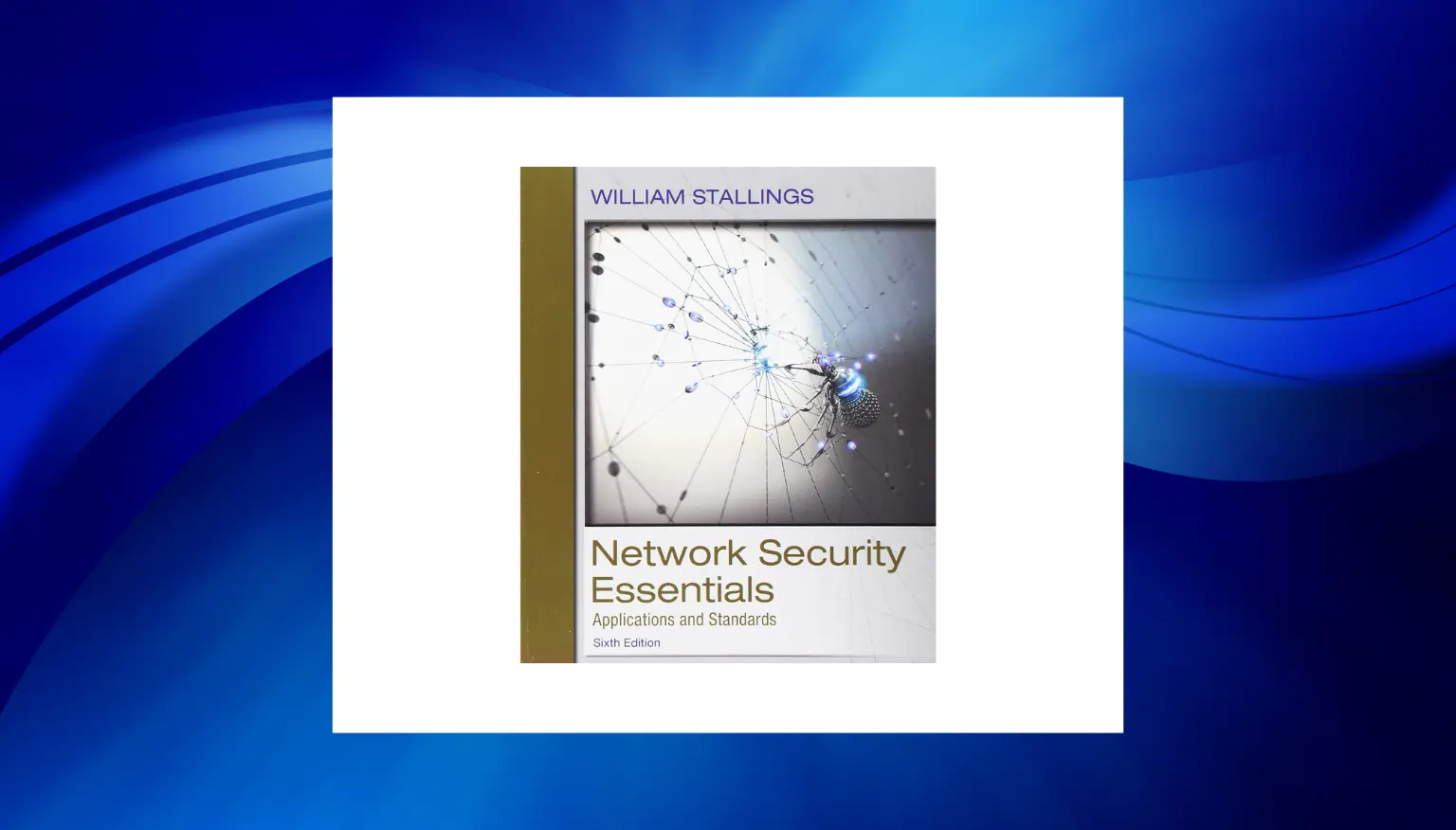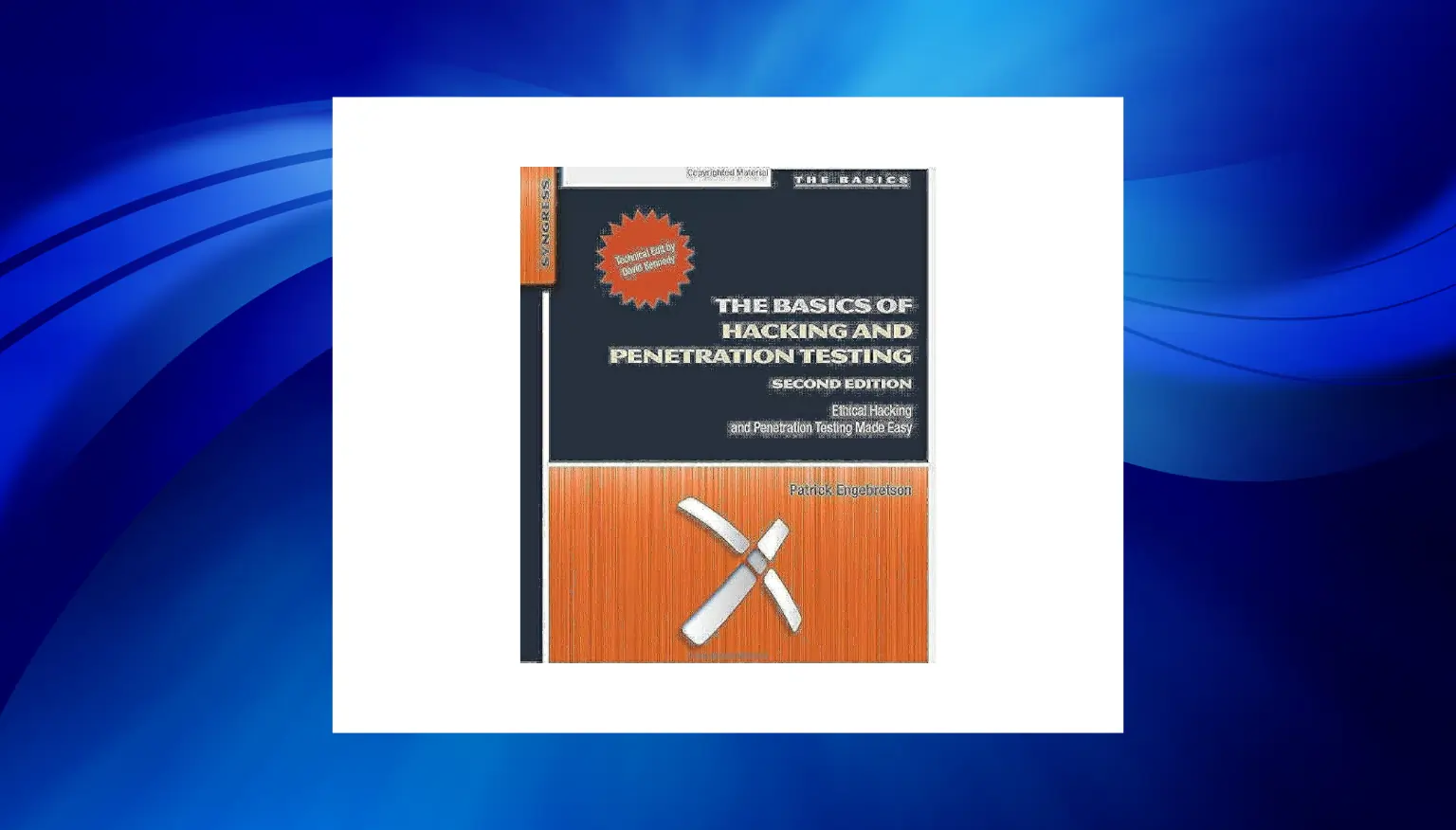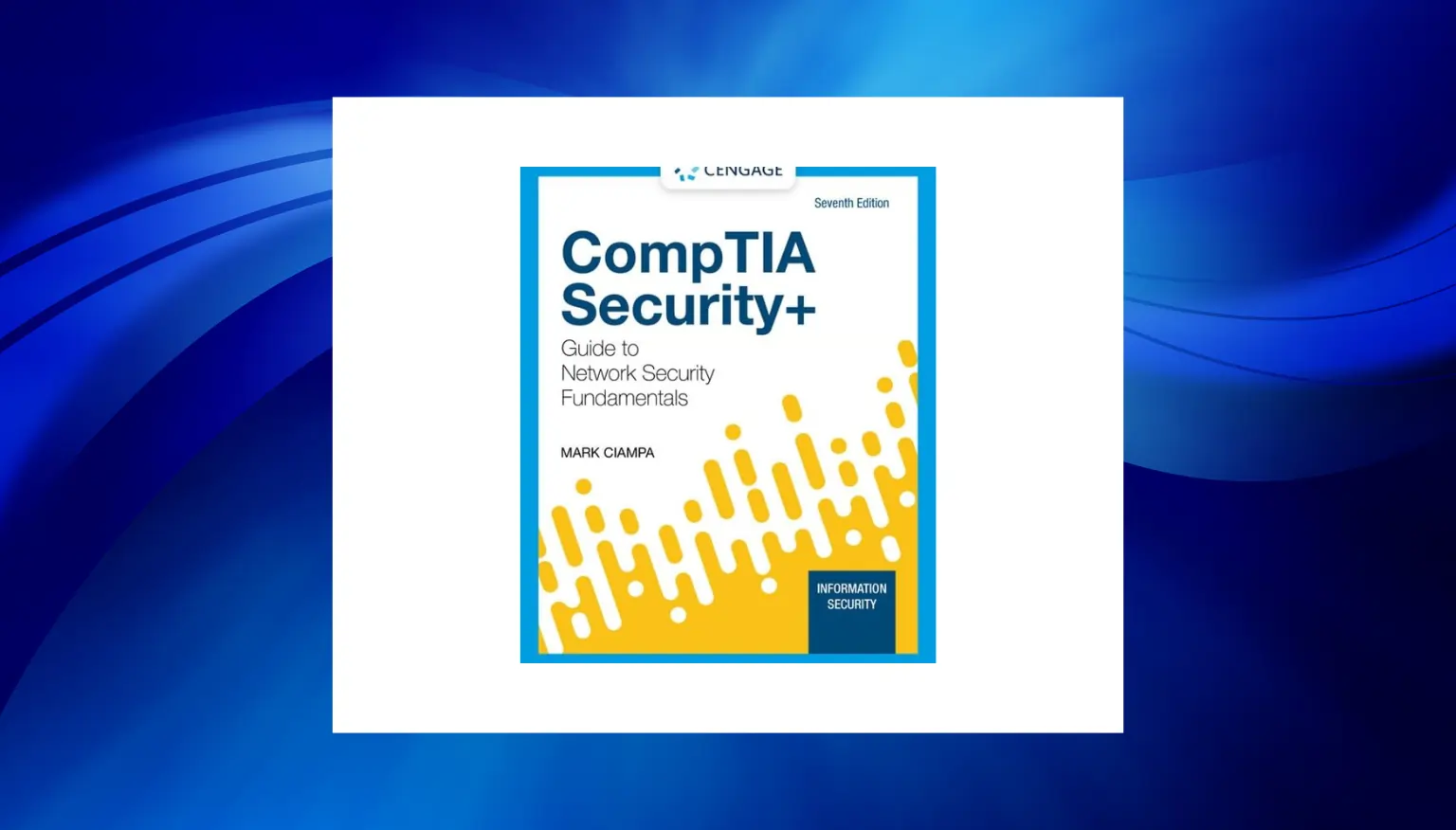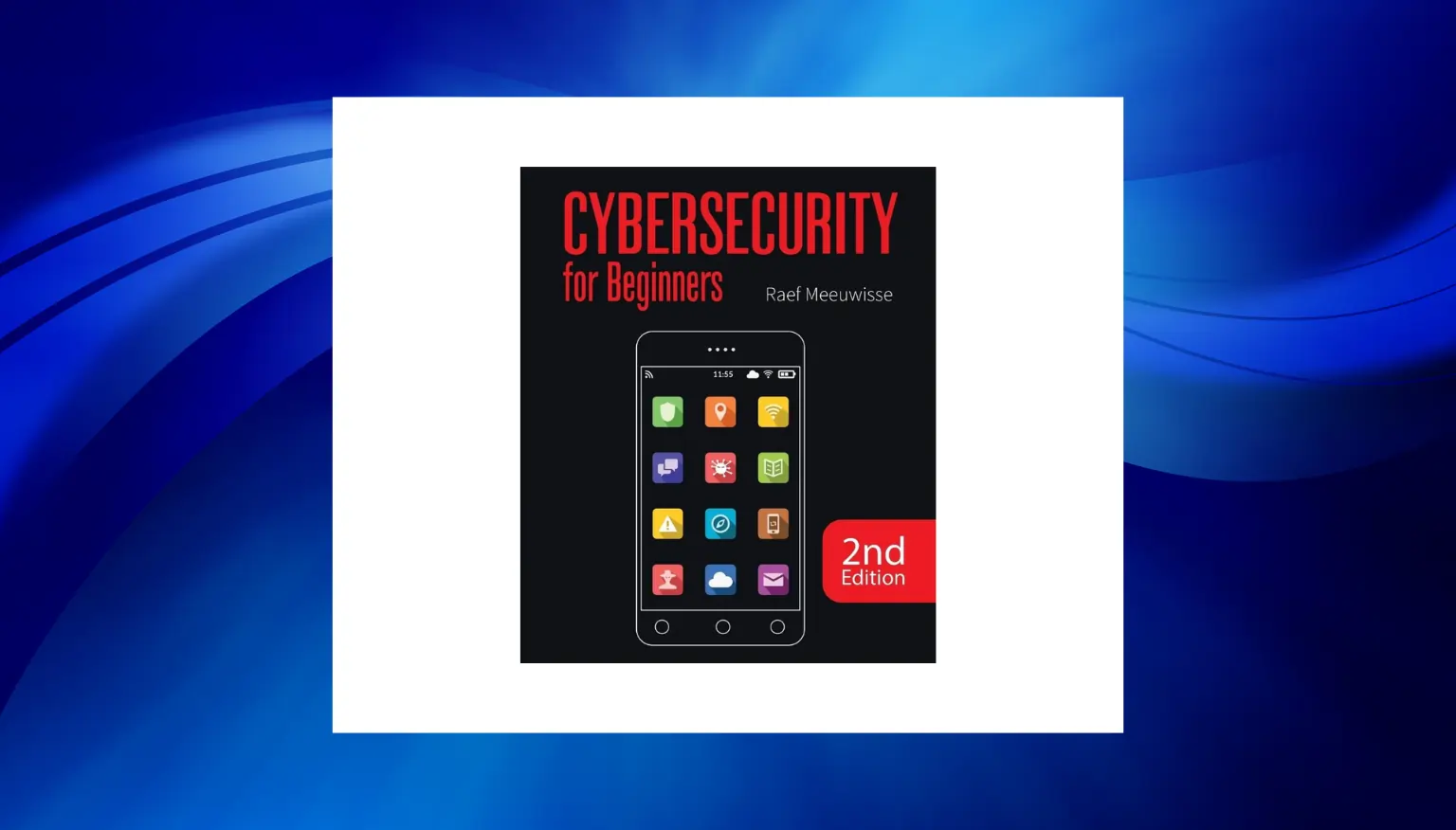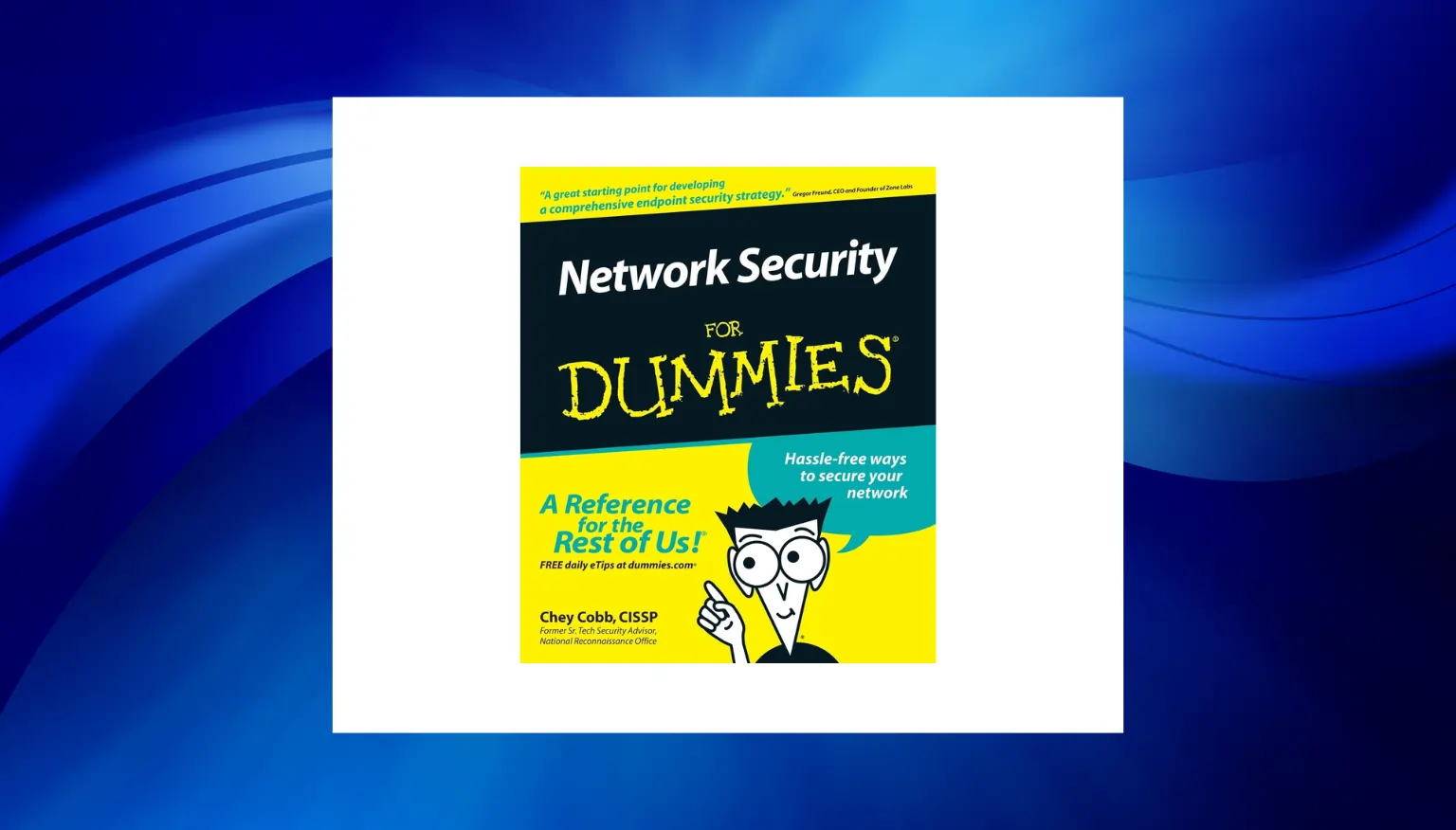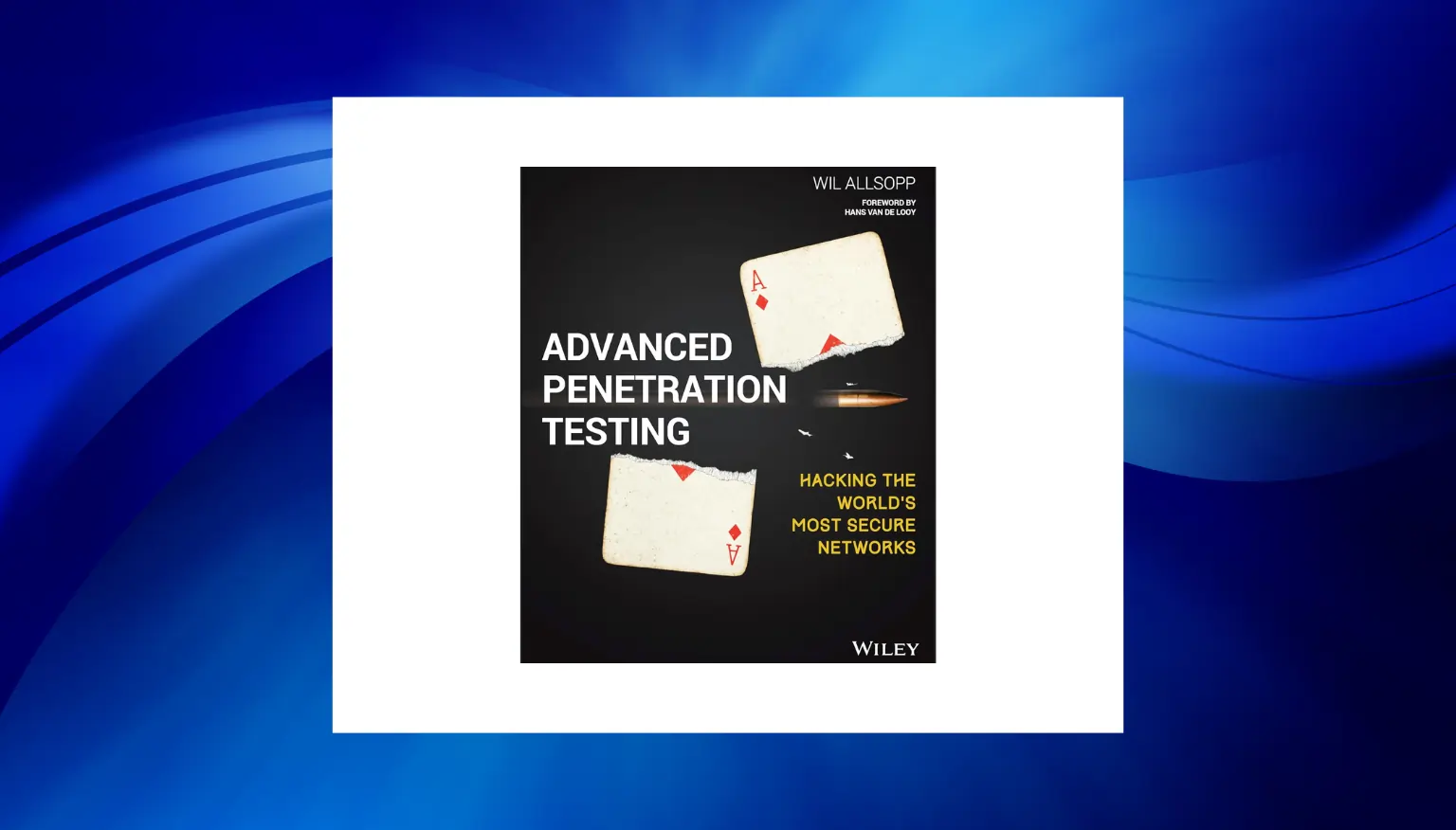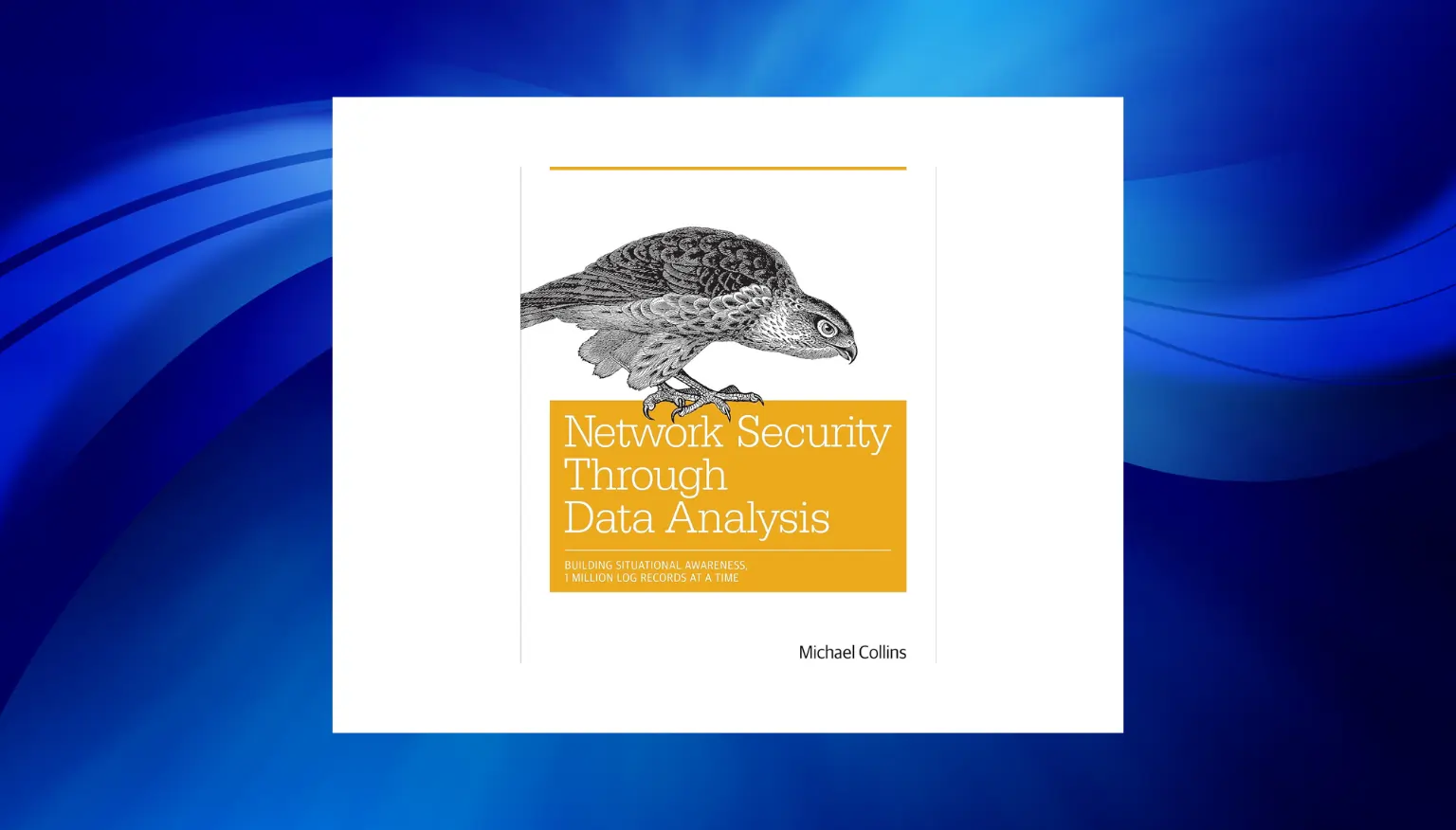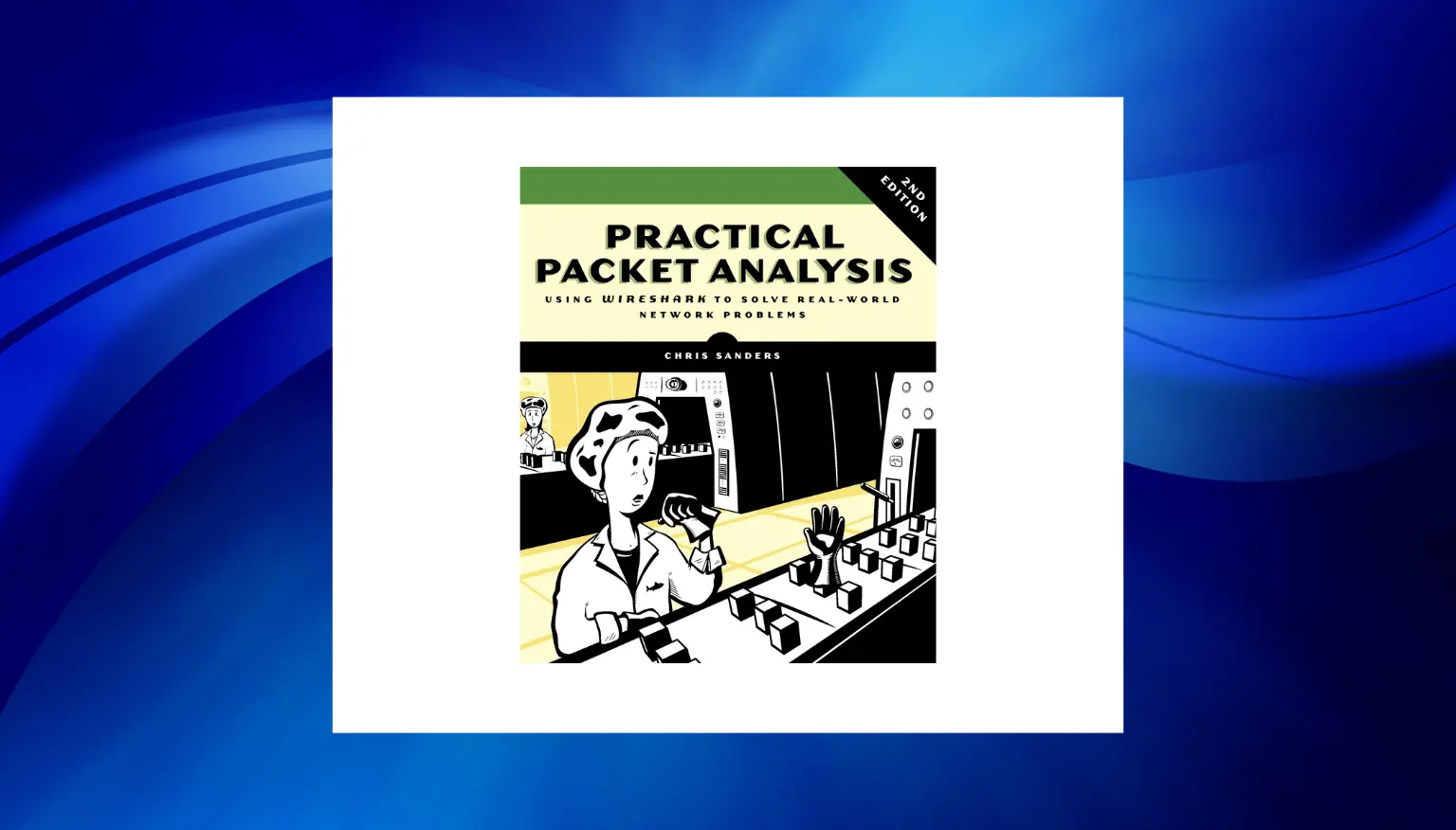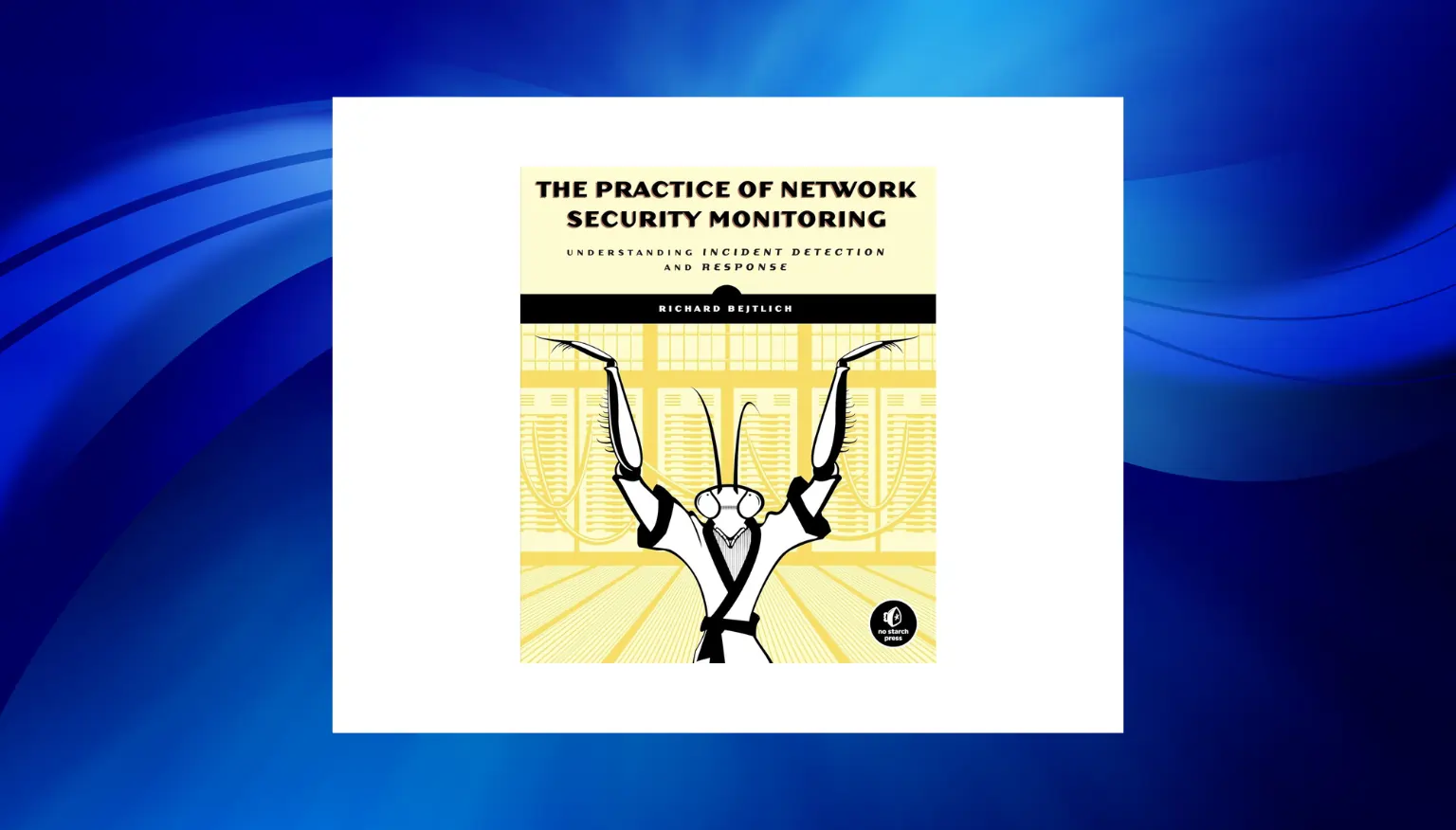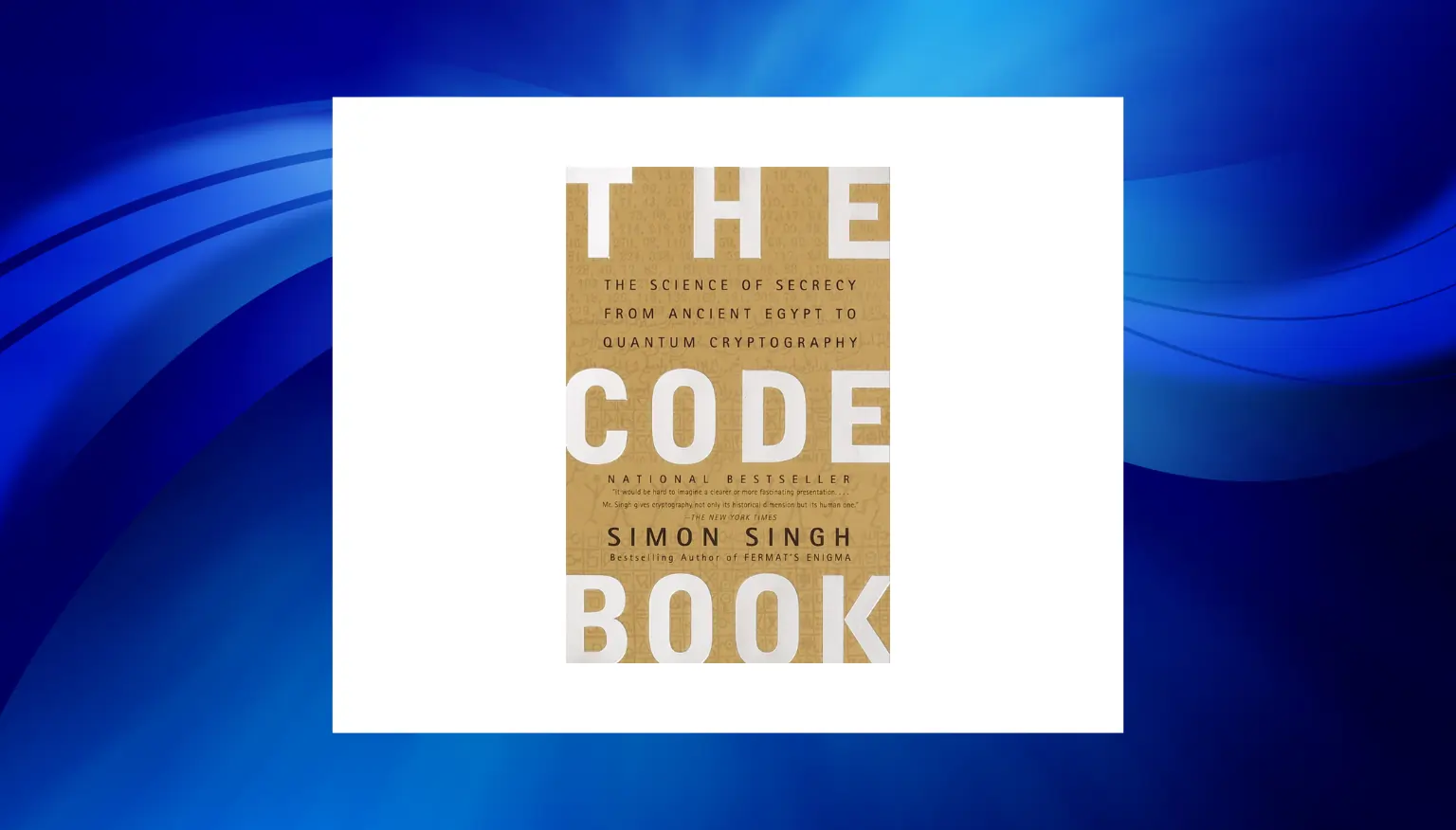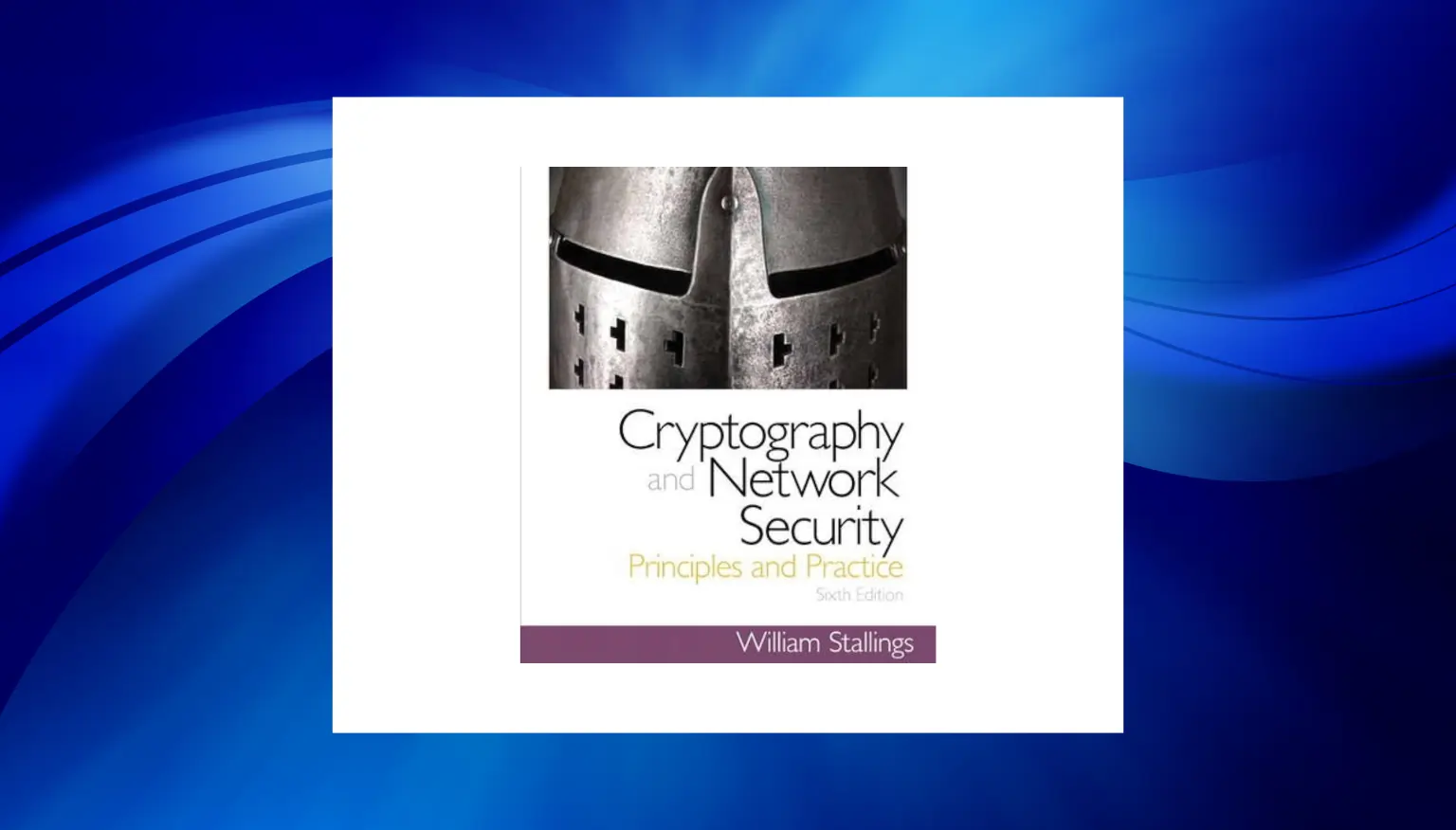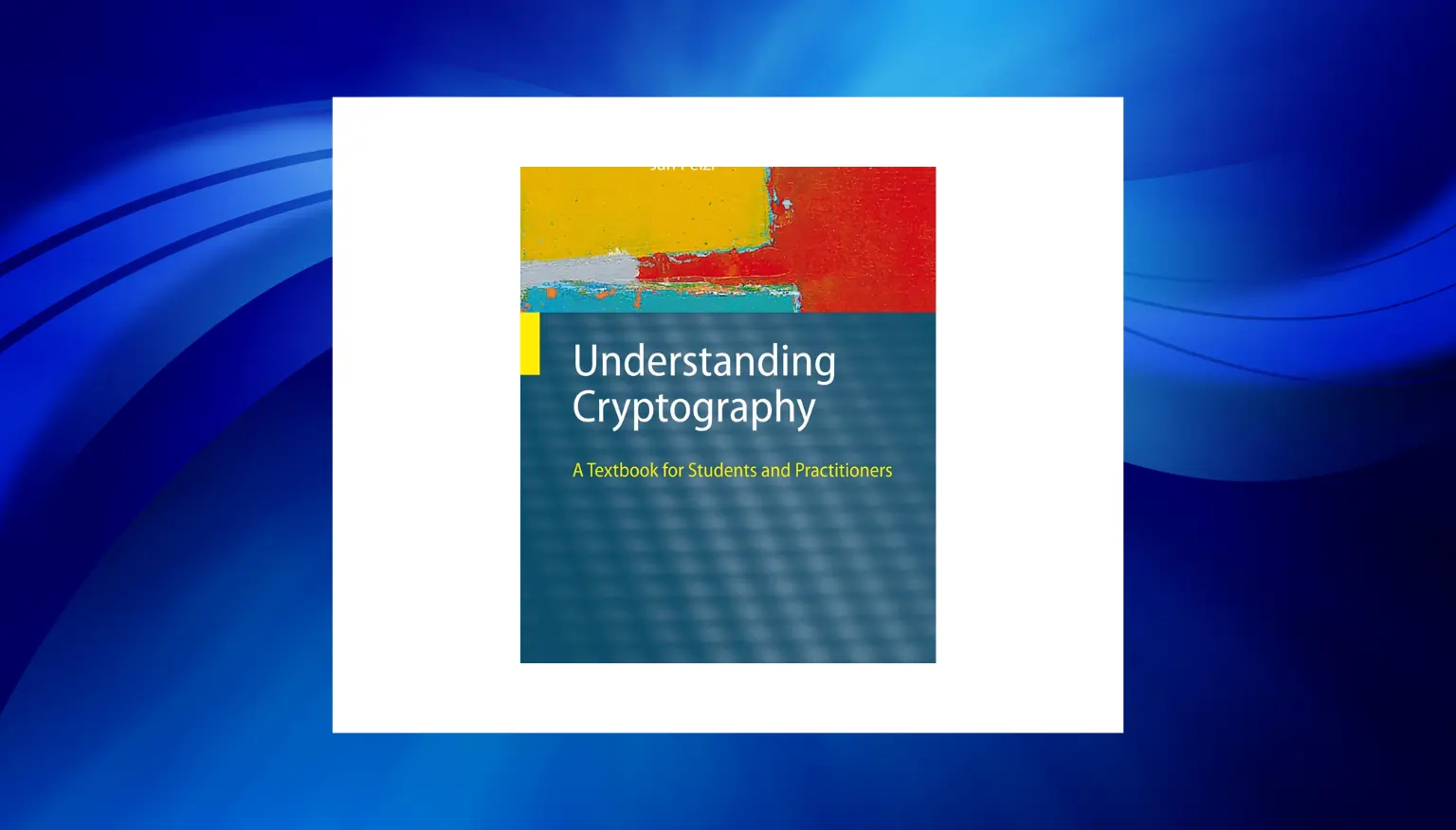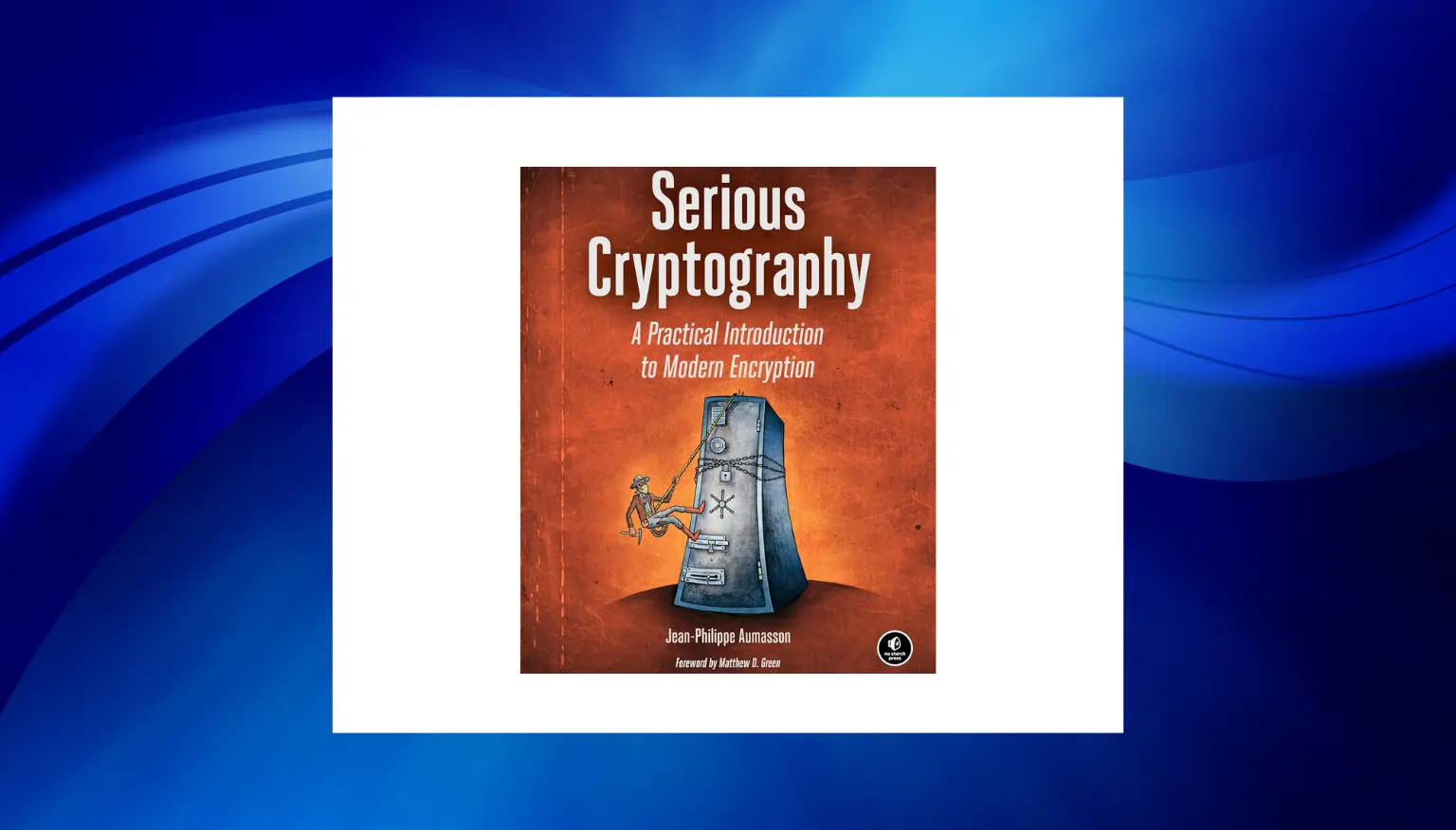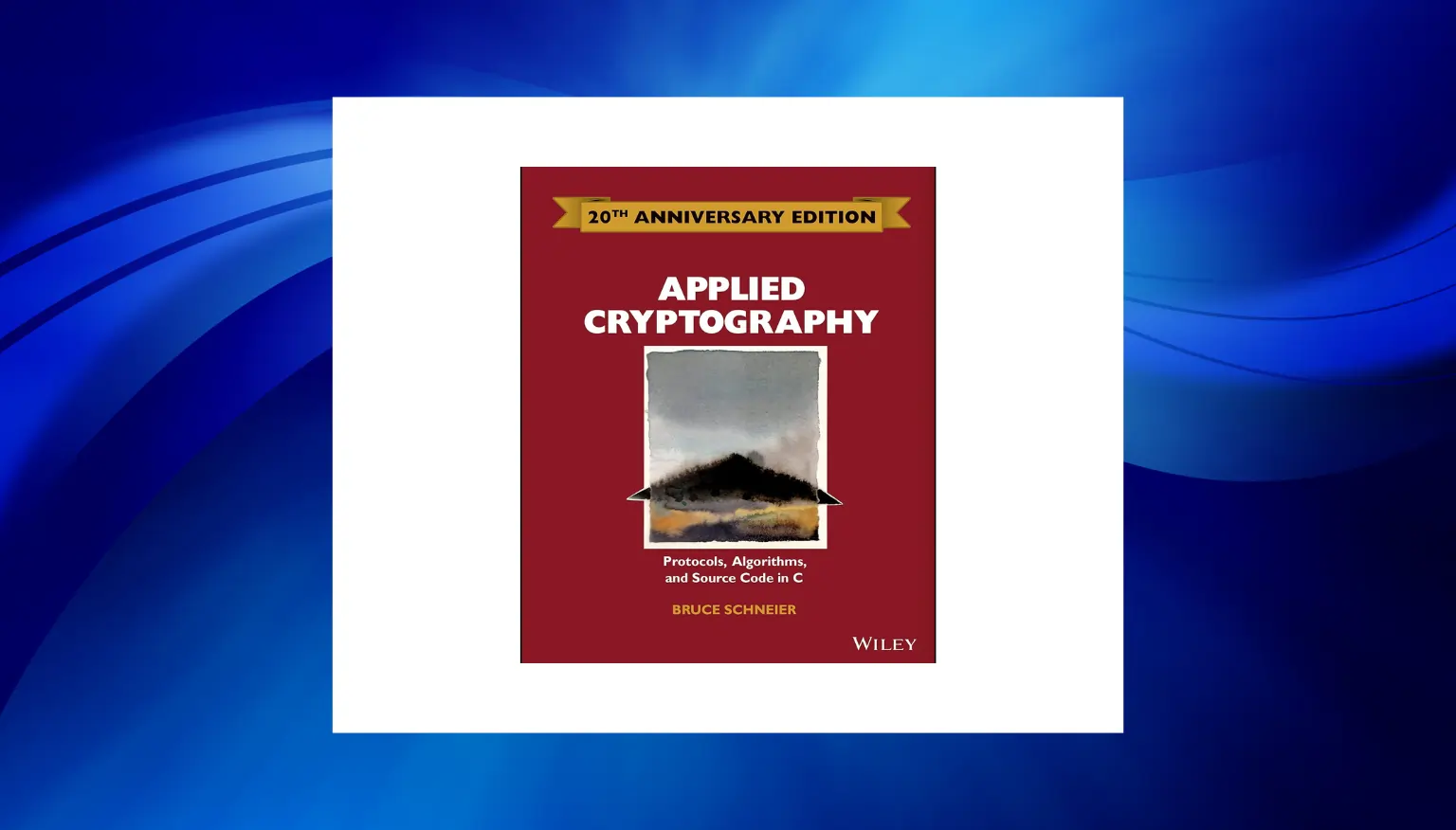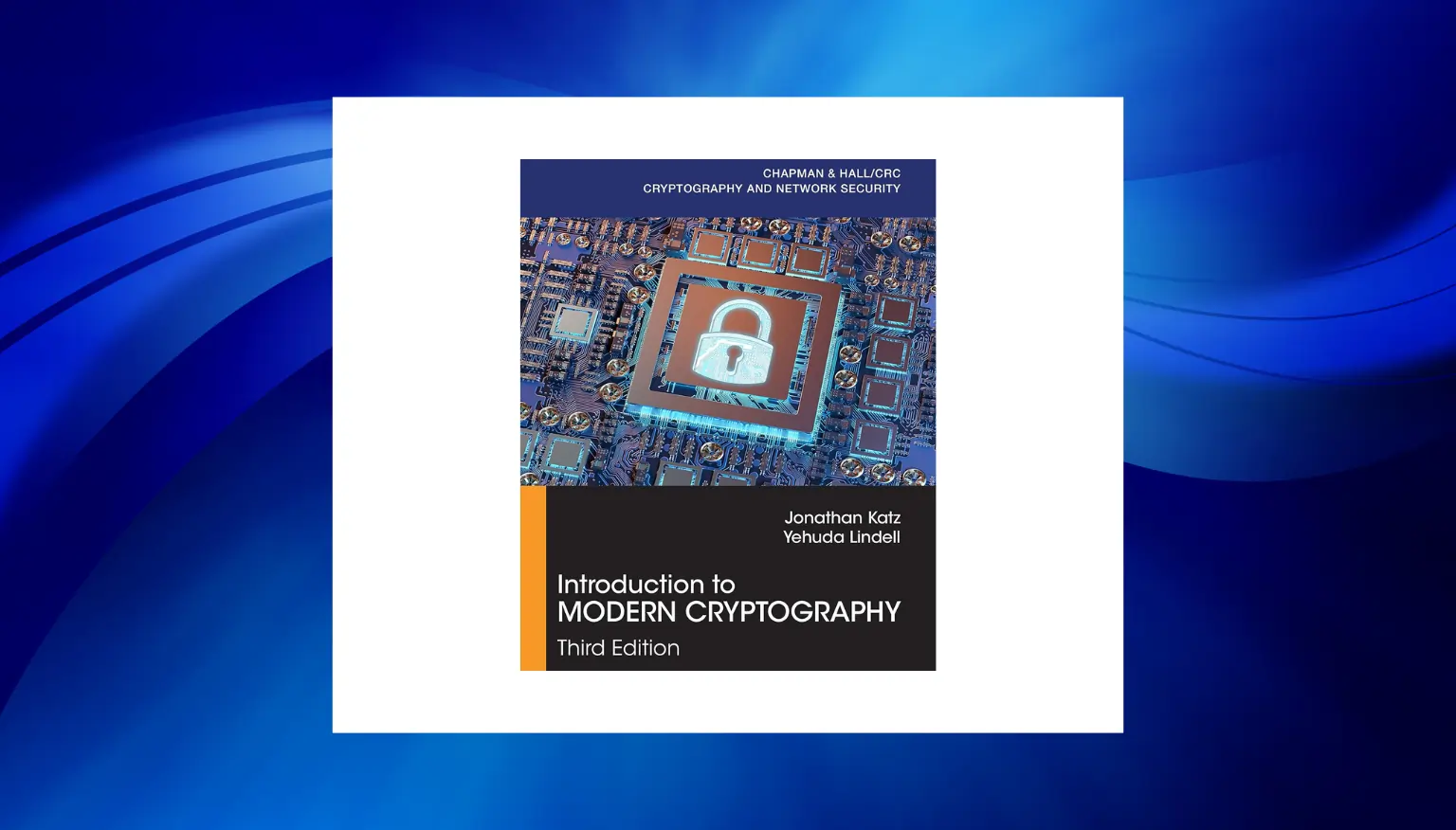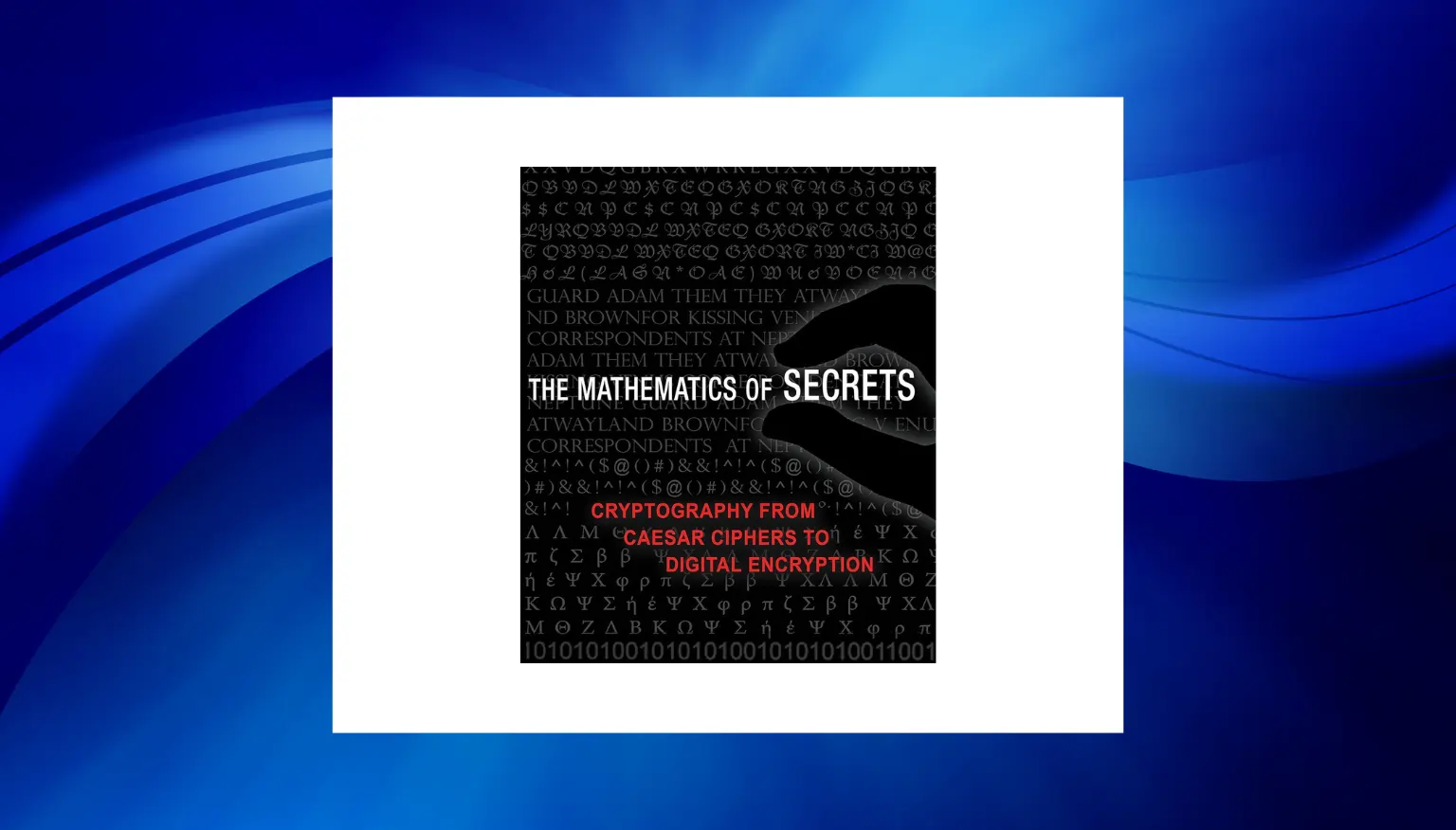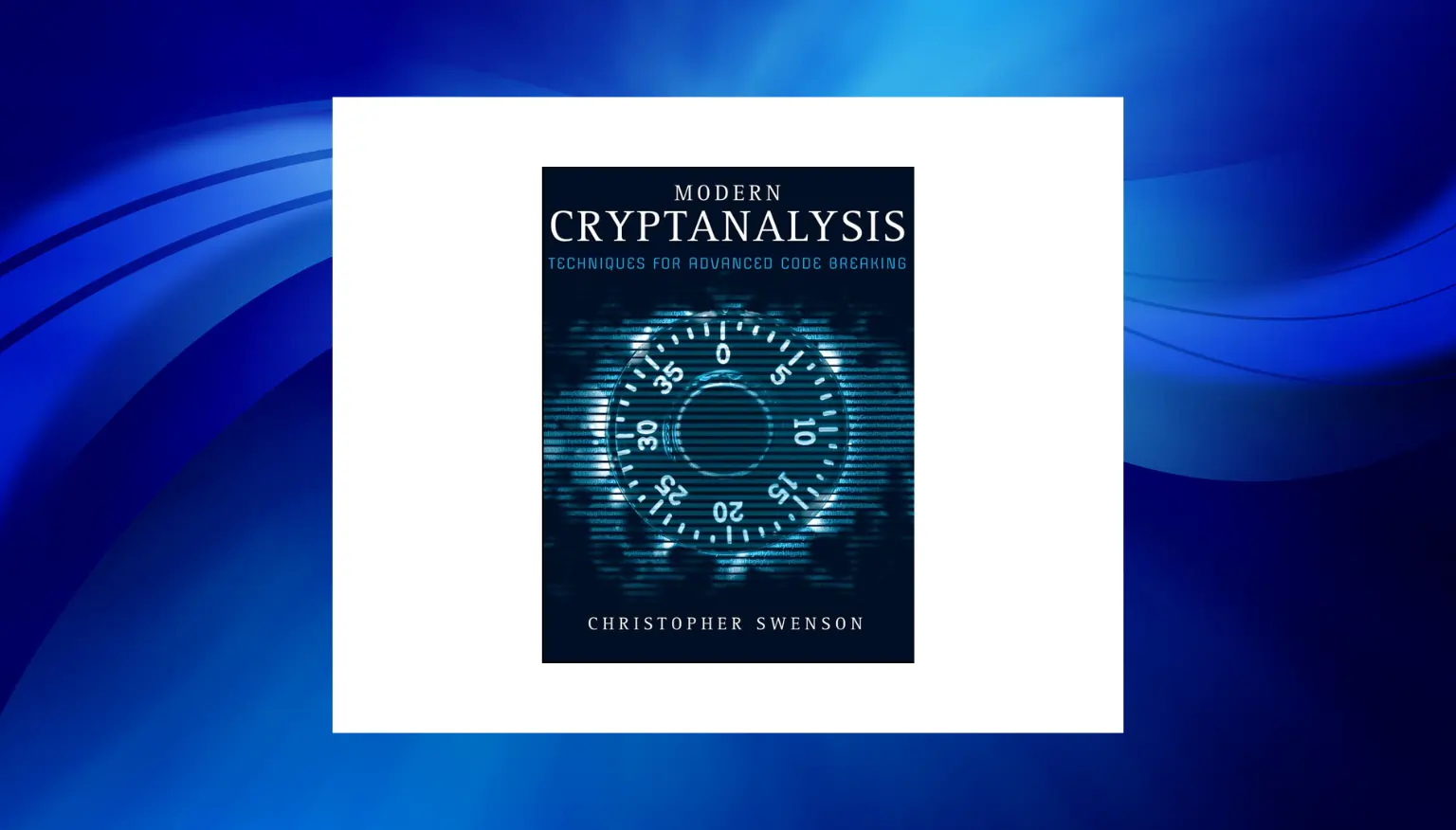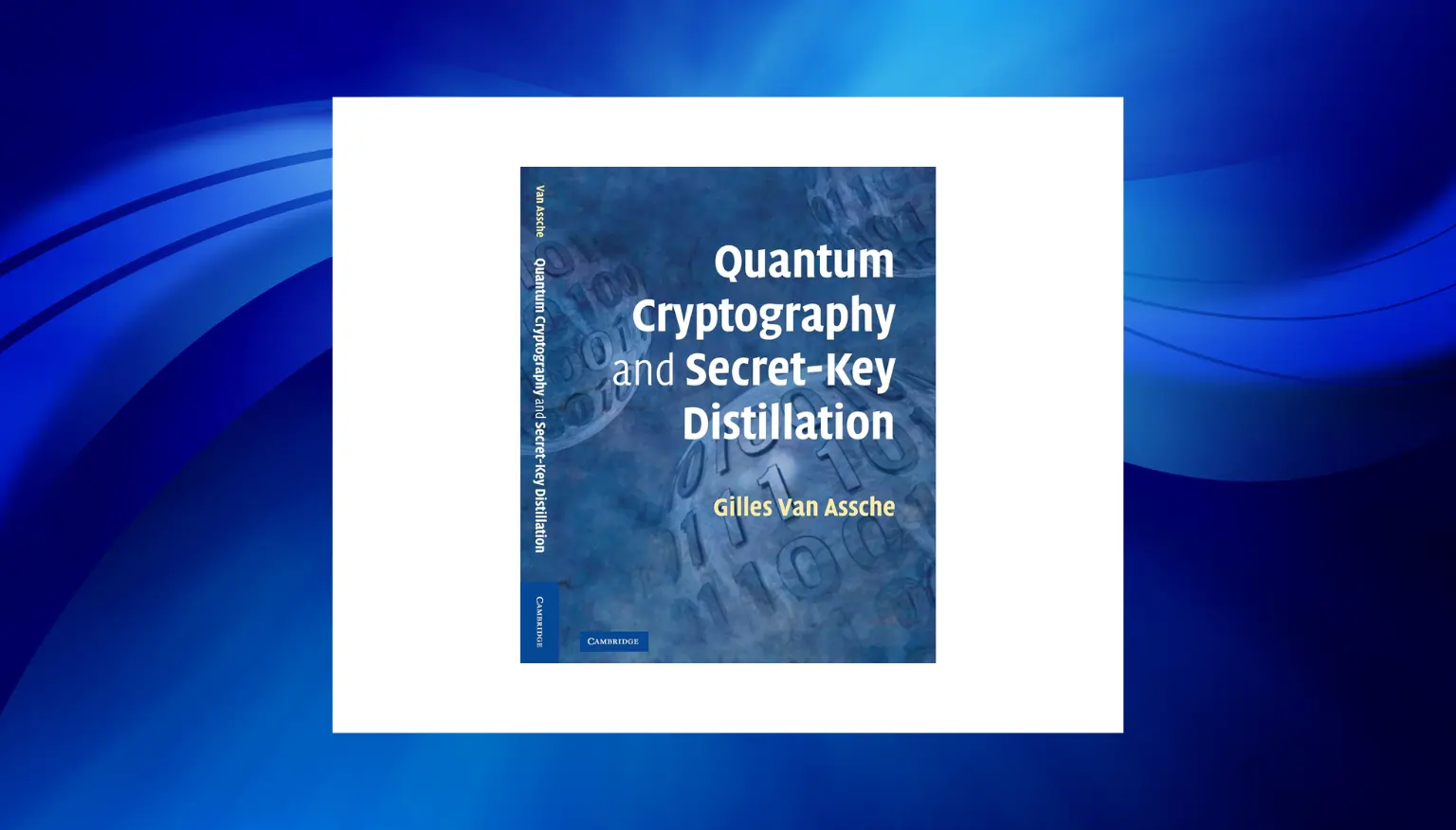In today’s digital landscape, cyber threats loom larger every day. Acquiring in-depth knowledge with the best cryptography and network security books is a bulwark against these omnipresent dangers, safeguarding sensitive data and ensuring the integrity of our digital interactions. So that you can adequately prepare yourself, we have created this selection of the best books on these topics.
Each book has been chosen not only for its ability to elucidate complex concepts, but also for its practical application in real-world scenarios, making them a valuable must-have resource for anyone looking to strengthen their understanding of digital security.
Suitable for beginners and seasoned professionals alike, these selections stand as pillars of knowledge in the ever-critical field of digital security, empowering readers to navigate the digital world with confidence.
Expert Picks: Top 10 Network Security Books
For those new to the fields of computer networking and network security, finding resources that provide both foundational knowledge and practical insights can be challenging.
Our curated list showcases ten essential texts renowned for their comprehensive coverage, clarity, and practical insights into safeguarding digital infrastructures.
Each book is selected for its ability to demystify complex network security principles and methodologies, offering readers both theoretical understanding and actionable techniques applicable in real-world scenarios.
Let’s start with the best network security books for beginners.
Gateway to Security: Top 5 Network Security Books for Beginners
The books listed below are specially curated for newbies, offering clear explanations of complex concepts and equipping readers with the tools needed for safeguarding digital environments.
These selections cover a range of network security essentials, from understanding how to protect against cyber threats to mastering the art of penetration testing.
Let’s dive in!
“Network Security Essentials: Applications and Standards” by William Stallings
William Stallings’ “Network Security Essentials: Applications and Standards” serves as a cornerstone in the field of network security monitoring and network security assessment, addressing the ever-pressing demand for robust internet security in our digitally interconnected era.
This book delves deep into the significance of safeguarding private information, underlining the critical need for authenticating data and fortifying systems against sophisticated network-based assaults.
The Sixth Edition brings readers up to speed with the latest advancements in public key cryptography, wireless security, and web security, expanding on the evolving fields of cryptography and network security.
It offers a comprehensive overview of both theoretical foundations and practical applications, making it a valuable resource for cybersecurity professionals and students in computer science.
This edition not only covers traditional cryptographic algorithms and intrusion detection systems but also provides insights into the design of secure computer networks and access control mechanisms.
It stands as an ideal practical guide for understanding applications crucial for both Internet and corporate networks, laying a solid foundation for those looking to deepen their knowledge in network security.
Amazon rating
4.5 🌕🌕🌕🌕🌗
What users said – Review from Michael
“I used this book together with some tutorial sessions during a lecture course at JCU Singapore. The content and the additional material provided was very useful.”
“The Basics of Hacking and Penetration Testing” by Patrick Engebretson
Patrick Engebretson’s “The Basics of Hacking and Penetration Testing” provides an invaluable introduction to the world of penetration testing and ethical hacking.
It simplifies the complex process of conducting a penetration test from start to finish, rendering it accessible for students and aspiring cybersecurity professionals to effectively utilize and interpret the outcomes of modern hacking tools.
Beyond merely teaching the use of these tools, Engebretson propels learners through a clear, four-step methodology, establishing this book as a solid foundation for those eager to embark on careers in offensive security.
This methodology encourages a hands-on experience that is vital for understanding the security, access control, and authentication measures that defend against cyber threats.
Amazon rating
4.6 🌕🌕🌕🌕🌗
What users said – Review from Scotty
“I’ve been IT for a long time and read more books than I can count on different topics. This was one of the most well written books I’ve read in 20 years. It covered the topics really well without going so deep that you lose the context of what you’re reading. Each chapter was well written and flowed well to the next. I read the whole book and then went back and practiced the examples so things would soak in. I would definitely recommend it to anyone who wants to start learning penetration testing or see things from an offensive viewpoint. Once you see things from an offensive viewpoint the defensive strategy becomes much clearer.”
“CompTIA Security+ Guide to Network Security Fundamentals” by Mark Ciampa
Mark Ciampa’s “CompTIA Security+ Guide to Network Security Fundamentals” mirrors the latest industry developments and trends, aligning perfectly with the new CompTIA Security+ SY0-601 Certification Exam.
This text not only covers the essentials of network and computer security but also dives into IoT security, security evaluations, and the protection of virtualized environments.
With practical projects, case activities, and virtual labs, Ciampa ensures that readers can bridge the gap between theoretical learning and practical application, making this book a key resource for foundational security education.
Amazon rating
4.4 🌕🌕🌕🌕🌗
What users said – Review from Daniel
“I find the book a good source to learn security and perhaps it helps to prepare for the certification.”
“Cybersecurity for Beginners” by Raef Meeuwisse
Raef Meeuwisse’s “Cybersecurity for Beginners” is an essential primer that demystifies the complexities of cybersecurity, making it an accessible and valuable resource for readers without a technical background.
It serves as a perfect introduction for business professionals and cybersecurity professionals who are looking to grasp the basics of securing digital assets in today’s technology-driven environment.
The book breaks down the critical importance of cybersecurity in the digital age, highlighting the risks and defenses associated with modern technology.
This includes an exploration of network security monitoring, intrusion detection, and web security, which are pivotal in protecting against cyber threats.
Additionally, Meeuwisse provides insights into network security essentials and applied cryptography, emphasizing the need for encryption and authentication methods to safeguard sensitive information across computer networks.
Amazon rating
4.5 🌕🌕🌕🌕🌗
What users said – Review from Steven
“I love that the author takes such an immensely technical topic and writes it so it’s easy for anyone to understand.”
“Network Security for Dummies” by Chey Cobb
Chey Cobb’s “Network Security for Dummies” demystifies the art of defending networks in a world increasingly threatened by cybercrime.
Cobb offers practical, straightforward strategies for identifying and mitigating network vulnerabilities, catering to readers seeking to understand network security without the deep technical jargon.
This book is perfect for individuals or small business owners who wish to personally oversee their network security without delving into overly complex network protocols or cryptographic algorithms.
Amazon rating
4.1 🌕🌕🌕🌕🌘
What users said – Review from Rory
“I really liked this book! All the others I picked up on the subject turned out to be about hacking and/or were deeply technical. This book hits just the right balance of basic explanations (without being condescending) and intro-level technical advice. My wireless network was wide open and I didn’t realize it until I read this book. I also know how to secure my computers with security patches – which always seemed like a black magic to me before. This writer really knows her stuff! I hope she does more books!”
These beginner-friendly books serve as a comprehensive introduction to network security, blending theoretical knowledge with practical applications.
As you build your understanding with these foundational works, the next step in your learning journey awaits with the next section, where you will encounter more complex challenges and sophisticated security techniques.
Advanced Defenses: 5 Must-Read Network Security Books for Experts
Diving deeper into the realm of network security requires a level of expertise and knowledge that can challenge even the most experienced professionals.
The following books are tailored for those who are ready to elevate their understanding and tackle sophisticated threats head-on.
These texts, renowned for their advanced methodologies and cutting-edge strategies, are indispensable for experts seeking to fortify their networks against complex cyber threats.
“Advanced Penetration Testing: Hacking the World’s Most Secure Networks” by Wil Allsopp
“Advanced Penetration Testing” by Wil Allsopp takes readers beyond conventional hacking, delving into the realm of attacking the most securely guarded networks.
The book sheds light on techniques seldom covered in standard certifications, merging social engineering, programming, and vulnerability exploitation in a multidisciplinary approach.
Readers will learn to create attack vectors, remain undetected, establish command structures, and infiltrate networks without direct internet access.
This guide is an invaluable asset for understanding the nuances of advanced penetration testing.
Amazon rating
4.7 🌕🌕🌕🌕🌗
What users said – Review from Brandon
“This is the best penetration testing book that I have ever read to date. There is such a depth of understanding of penetration testing that is conveyed in this book in the way that the author is able to portray highly advanced topics in a conceptually understandable way. A novice might not be able to follow the text, as it is advanced, but for anyone looking to open their mindset up to becoming a more effective penetration tester, I HIGHLY advise this book.”
“Network Security Through Data Analysis: Building Situational Awareness” by Michael Collins
Michael Collins’ “Network Security Through Data Analysis” offers a forward-thinking approach to network security, underscoring the importance of data analysis and data communications in creating robust network security monitoring and assessment frameworks.
This book provides cybersecurity professionals and network administrators with the valuable resource needed to detect and thwart cyber threats through a meticulous examination of network traffic and data patterns.
Emphasizing a data-driven security posture, Collins demonstrates how intrusion detection, web security, and applied cryptography play pivotal roles in defending against sophisticated cyberattacks.
The guide serves as a perfect introduction to the concepts of network security essentials, equipping readers with advanced methods and techniques for cybersecurity in the digital age.
Amazon rating
4.7 🌕🌕🌕🌕🌗
What users said – Review from Timm
“Should be considered a gold standard for learning network security. Breaks down the analysis problem effectively, clearly, and simply. Starts from the beginning, allow new comers to get the full background needed to come up to speed rapidly.”
“Practical Packet Analysis: Using Wireshark to Solve Real-World Network Problems” by Chris Sanders
Chris Sanders’ “Practical Packet Analysis: Using Wireshark to Solve Real-World Network Problems” delves deep into the realm of network security monitoring and packet analysis, leveraging the powerful Wireshark tool.
This invaluable guide not only elucidates the TCP/IP network stack but also enhances the reader’s ability to diagnose and mitigate network security threats effectively.
In its updated second edition, Sanders expands the discourse on network protocols and data communications, incorporating new scenarios that reflect the latest in cybersecurity challenges.
It’s a comprehensive resource that covers topics essential for computer scientists and cybersecurity professionals eager to develop a solid foundation in network security essentials.
Amazon rating
4.7 🌕🌕🌕🌕🌗
What users said – Review from Nick
“As a computer engineer with many years of networking experience I found this book to be an invaluable addition to my tech library. No Starch Press is easily my favorite publisher of technology related books and with good reason. Sanders explains everything- the OSI model, packet structure, the intricacies/power of Wireshark, etc. in a human (non-dry-textbook style) form, which really is the best way to teach these topics. With practice this book will have you up-and-running comfortably analyzing network traffic with a solid understanding of what you’re looking at. I wish I had this book while in school so much that I’ve even suggested to professors teaching networking courses to adopt this book. This review may sound a bit extreme, but it is rare that you find informational books of this caliber. If you’re anywhere between remotely interested in computer networking and a seasoned network admin definitely pick up this book.”
“The Practice of Network Security Monitoring: Understanding Incident Detection and Response” by Richard Bejtlich
Richard Bejtlich’s “The Practice of Network Security Monitoring” delves into the intricate world of network security monitoring (NSM), providing a blueprint for the assessment, deployment, building, and operational management of NSM systems.
This seminal work is crucial for cybersecurity professionals and computer scientists aiming to forge a solid foundation in protecting computer networks against evolving cyber threats.
Highlighting data analysis techniques essential for intrusion detection, Bejtlich offers practical insights and methods to detect, contain, and control threats with precision.
The book covers topics crucial for maintaining the security and integrity of networks, emphasizing the role of encryption and public key infrastructures in bolstering defense mechanisms.
Amazon rating
4.6 🌕🌕🌕🌕🌗
What users said – Review from Plogoo
“Great book! I have several years experience in NSM and Security Onion. I thought I knew quite a bit but this book expanded upon my knowledge of NSM and Security Onion. Maybe not for advanced or expert users. Also, just slightly out of date so a few things are off a bit but 95% is still current.”
“Hacking Exposed 7: Network Security Secrets and Solutions” by Stuart McClure, Joel Scambray, George Kurtz
“Hacking Exposed 7” by Stuart McClure, Joel Scambray, and George Kurtz provides an in-depth analysis of cyber threats and defense strategies, making it a cornerstone for cybersecurity professionals.
The book intricately details the latest attack vectors and the shift towards an in-depth understanding of hacker methodologies, offering network security monitoring and assessment techniques critical in today’s digital landscape.
This edition is pivotal for those in computer science and computer networks, offering a comprehensive overview of both traditional and novel cybersecurity challenges and solutions.
It goes beyond mere cryptography to discuss encryption methods, public key infrastructure, and cryptographic algorithms, ensuring readers have a solid foundation in network security.
Amazon rating
4.5 🌕🌕🌕🌕🌗
What users said – Review from Darren
“Covers some important material you may not always see anywhere else. This book is a helpful reference to go getters involved in network security, and I found the topics discussed were better presented and clearly expressed than longer articles dealing with similar material. A real solid starting point with fun to try examples!”
These books not only expand your knowledge but also prepare you for the practical challenges of network security.
Next, we transition into the realm of cryptography where the focus shifts from defending against external threats to understanding the foundational security mechanisms that protect information at its core.
Mastering Secrets: Top 10 Cryptography Books
Embarking on the journey of cryptography introduces us to the science that safeguards the secrecy and integrity of our digital conversations and data.
Cryptography is the linchpin of secure communication in our hyper-connected world, from securing the emails we send to protecting the transactions we make.
This section unveils a treasure trove of resources that pave the way from the rudimentary concepts to the quantum cryptography frontier.
Unlocking Cryptography: 5 Best Cryptography Books for Beginners
For those newly initiated into the world of cryptography, the complexity of its concepts can be daunting. Yet, understanding the principles of cryptography is foundational to grasping the broader aspects of digital security.
The following books serve as an invaluable guide for beginners, offering a blend of historical context, fundamental principles, and the application of cryptographic techniques.
These books not only demystify cryptography but also provide the reader with the knowledge to appreciate its importance in securing modern digital infrastructures.
“The Code Book: The Science of Secrecy from Ancient Egypt to Quantum Cryptography” by Simon Singh
“Simon Singh’s “The Code Book” delves deep into the history of encryption, showcasing its crucial role from ancient ciphers to quantum cryptography.
It’s a journey through time, highlighting how encryption has been pivotal in shaping wars, politics, and safeguarding individual liberties.
Singh masterfully unravels the evolution of cryptographic techniques, emphasizing their fundamental importance in modern digital security and network protection.
This book is highly recommended for computer scientists, security professionals, and anyone fascinated by the theory and practice of cryptography.
It covers topics essential for understanding the methods and codes that protect information in our digital world, offering full details on the development of cryptographic keys and the battle between cipher creators and code breakers.
Amazon rating
4.6 🌕🌕🌕🌕🌗
What users said – Review from Samarth
“The book is impactful for those who have no idea about this field. It sets the tone, gives enough background and as some other reviews rightly said, explains repetitively – but that’s good I think as it leaves no doubt about the logic and thus any reader can enjoy the book reading journey. As half of people drop off when it gets too much over the head. I recommend this to all just getting started. For advanced/more knowledgable readers may not be best read but they still may benefit from recommended references. I do feel that this book needs a part 2 which picks up where this book stopped which was in year 2000.”
“Cryptography and Network Security: Principles and Practice” by William Stallings
William Stallings’ “Cryptography and Network Security: Principles and Practice” is a deep dive into the security framework that underpins modern networks and cryptography.
This book covers topics extensively, from the theory behind encryption to the practical applications and methods of securing digital infrastructures.
It addresses both the counter hack strategies and network security assessment tactics that are crucial for computer scientists and cybersecurity professionals.
Stallings’ work stands out for its full details on cryptographic keys, ciphers, and codes, ensuring that readers gain a solid foundation in both the principles and practices of network security.
The guide is particularly valuable for those in organizations seeking to bolster their defenses against the latest cyber threats.
With case studies and examples from real-world scenarios, it offers hands-on experience and insights into networking, making it an essential resource for anyone looking to enhance their security posture.
Amazon rating
4.1 🌕🌕🌕🌕🌘
What users said – Review from Bill
“This is an excellent book that provides both a basic tutorial of cryptography and network security principles as well as a very detailed reference. The book is readable at multiple levels with figures and tables that provide a visual explanation of how the cryptography takes place. If you just want to get a basic understanding of cyphers and algorithms, it is an easy read through the chapters (skipping the heavy details) to obtain that base level of knowledge. When you want to dive in deeper, the information is present to truly understand each of the cyphers and algorithms. This is definitely a book that can be used as a simple tutorial or a classroom text – and then kept long term as a much more detailed reference.”
“Understanding Cryptography: A Textbook for Students and Practitioners” by Christof Paar and Jan Pelzl
“Understanding Cryptography” by Christof Paar and Jan Pelzl stands as a must-read textbook that covers topics in cryptography with an emphasis on computer science.
By unraveling the mathematical concepts behind cryptographic algorithms, encryption, and cipher systems, this book lays a solid foundation for both students and practitioners.
It bridges theory and practice, making complex ideas accessible and providing full details on cryptographic keys and methods.
Paar and Pelzl’s approach equips readers with the necessary tools to conduct a thorough network security assessment and understand the security mechanisms that protect digital communications across networks.
Amazon rating
4.6 🌕🌕🌕🌕🌗
What users said – Review from Megan
“This textbook is hands down one of the best ones that I have encountered in any subject throughout an undergrad and most of a grad degree in math. The chapters are clear and concise, and usually begin with a high level conceptual overview before breaking down component algorithms and supporting math theory. It is easy to read and is fantastic about providing a combination of historical, functional, and mathematical context. It provides examples and explanations without being overly wordy, and is formatted to avoid large sections of block text. The end-of-chapter problems are a mixture of straight algorithmic/mathematical practice as well as ones that challenge you to think about the security and attack vectors for various ciphers (meaning a good blend of true practice and appropriately challenging thought exercises). I would highly recommend this text.”
“Serious Cryptography: A Practical Introduction to Modern Encryption” by Jean-Philippe Aumasson
“Serious Cryptography: A Practical Introduction to Modern Encryption” by Jean-Philippe Aumasson offers a deep dive into cryptography, seamlessly blending theoretical concepts with practical applications.
This insightful guide covers topics crucial for computer scientists and cybersecurity professionals, including authenticated encryption, quantum computation, and cryptographic keys.
Aumasson’s work is a valuable resource for conducting network security assessments and understanding encryption methods and ciphers that safeguard digital communications.
Readers will appreciate the focus on applied cryptography, cipher codes, and the importance of key management in securing computer systems and data communications.
Amazon rating
4.7 🌕🌕🌕🌕🌗
What users said – Review from Alan
“This book was a clear and accessible introduction to a subject often (justly) regarded as mysterious, forbidding, and mathematically challenging. Aumasson confidently navigates a course between saying too little and leaving the reader guessing, and saying too much and leaving them overwhelmed. Even if you don’t plan to implement a production cryptosystem—and if there’s one lesson of this book, it’s that you shouldn’t—this book will improve your understanding of the various cryptosystems that we use every day.”
“Applied Cryptography: Protocols, Algorithms, and Source Code in C” by Bruce Schneier
“Bruce Schneier’s Applied Cryptography: Protocols, Algorithms, and Source Code in C is a cornerstone in the cryptography field, extensively covering cryptographic protocols, algorithms, and their implementation in C.
It serves as an indispensable resource for developers, engineers, and computer scientists who are keen on the practical aspects of cryptography.
Schneier’s comprehensive exploration is lauded for its depth and breadth, addressing everything from basic encryption methods to complex cryptographic ciphers and codes.
This book provides the full details necessary for conducting network security assessments, offering a solid foundation in both theory and applied cryptography.
Amazon rating
4.5 🌕🌕🌕🌕🌗
What users said – Review from Mathew
“Great Book, lives up to its reputation. I’m reading through the book linearly, it walks you through in a nice, easy manner and thoroughly covers each topic from basic terminology, protocols, and more.”
As we transition from the basics to more advanced topics, our next section delves into the nuanced complexities and cutting-edge advancements in the field, catering to those ready to expand their expertise further.
Crypto Deep Dive: 5 Best Cryptography Books for Experts
For professionals who have mastered the foundational elements of cryptography and seek to further their expertise, this segment presents a selection of advanced literature.
These books delve into complex cryptographic protocols, advanced code-breaking techniques, and the cutting-edge realm of quantum cryptography.
They are essential for anyone looking to deepen their knowledge and stay ahead in the rapidly evolving field of cryptography.
“Introduction to Modern Cryptography” by Jonathan Katz and Yehuda Lindell
“Introduction to Modern Cryptography by Jonathan Katz and Yehuda Lindell delves deeply into the cryptography discipline, presenting a thorough investigation of the principles that form the foundation of modern cryptographic systems.
Renowned for its precise approach to defining security, the book provides detailed proofs and a solid theoretical framework for grasping complex cryptographic concepts and encryption methods.
This text is a key resource for those dedicated to understanding the science of cryptography at a rigorous level.
It covers a range of topics from basic ciphers to advanced encryption techniques, making it an essential guide for computer scientists and professionals working within organizations that depend on secure communication.
Amazon rating
4.6 🌕🌕🌕🌕🌗
What users said – Review from Artur
“I have not finished the book yet, but from material I went so far and from Jonathan Katz’s course on Cryptography I think I can describe authors way of providing information. I would characterize it in two keywords: rigorous and complete. Other materials I have met were maybe more lively but this one is is the best if you are really serious about crypto. It will give all the details you need to understand and work with modern cryptographic primitives. I will teach how to prove or disprove properties of various cryptographic schemes.”
“Cryptanalysis: A Study of Ciphers and Their Solution” by Helen F. Gaines
Helen F. Gaines’s “Cryptanalysis: A Study of Ciphers and Their Solution” remains a cornerstone in the cryptography field, offering a profound exploration of cipher breaking’s art and science.
This classic work is pivotal for understanding the evolution and application of cryptanalytic techniques, ranging from straightforward monoalphabetic ciphers to the intricacies of polyalphabetic systems.
Despite being considered slightly outdated in the rapidly advancing digital era, its principles are timeless, providing a solid foundation in cryptanalysis that is relevant for computer scientists, security professionals, and enthusiasts involved in networking and cybersecurity.
Amazon rating
4.5 🌕🌕🌕🌕🌗
What users said – Review from Amazon Customer
“Overall, the book itself covers several methods of attack, monoalphabetic ciphers coming the easiest to solve. Along after that is things like the Vigenere cipher and other polyalphabetic ciphers. In addition, there are even more goodies in the back, such as the most common occuring two and three letter words for your convenience, along with the most occuring words in order. So if you want a good reference book for supporting your cause in fighting the encryption of your high school nemesis passing a ‘encoded’ note, this will help.”
“The Mathematics of Secrets: Cryptography from Caesar Ciphers to Digital Encryption” by Joshua Holden
Joshua Holden’s “The Mathematics of Secrets” takes readers on a captivating journey through the mathematical underpinnings of cryptography.
This book uniquely bridges the gap between historical ciphers and modern encryption techniques, providing a comprehensive view of how mathematics secures digital communication.
By blending historical anecdotes with contemporary examples, Holden elucidates how mathematical principles form the backbone of cryptographic security.
It provides readers with a solid foundation in cryptography, from simple Caesar ciphers to the complex algorithms that protect computer networks today.
Amazon rating
4.7 🌕🌕🌕🌕🌗
What users said – Review from Amazon customer
“Not being a mathematician, but with a basic math background, I was looking for an introduction to the mathematics of cryptography. I needed that to better understand crypto. The author did a great job ! I was able to understand it almost completely and it gave me wonderful insights that I did not have before.”
“Modern Cryptanalysis: Techniques for Advanced Code Breaking” by Christopher Swenson
“Modern Cryptanalysis” by Christopher Swenson brings cryptanalysis into the 21st century, providing a comprehensive overview of contemporary techniques used to break complex cryptographic systems.
This book is tailored for those with a foundational understanding of cryptography who are eager to explore advanced cryptanalytic methods and applications.
Swenson’s expertise shines as he navigates through the complex landscape of cryptanalysis, offering insights into counter-hack strategies and shedding light on the theoretical underpinnings that guide the encryption and decryption processes.
His approach makes the cipher techniques accessible, moving beyond the slightly outdated to focus on advanced cryptanalytic methods that challenge even the most secure systems.
Amazon rating
4.6 🌕🌕🌕🌕🌗
What users said – Review from Cryptoguy
“This book fills a gap in the cryptography literature. There are many introductory books on cryptography, but this is the only one I know of on cryptanalysis. The first part of the book gives a basic introduction to cryptography, particularly symmetric ciphers. Then the book discusses, in some detail, modern cryptanalysis including differential and integral cryptanalysis. It is a very good book on the topic and I recommend it.”
“Quantum Cryptography and Secret-Key Distillation” by Gilles Van Assche
“Gilles Van Assche’s “Quantum Cryptography and Secret-Key Distillation” is a pioneering work at the cutting edge of cryptographic innovation, specifically within the realm of quantum cryptography.
This groundbreaking book delves deep into the mechanisms of quantum key distribution and the foundational principles of quantum mechanics to offer enhanced security solutions beyond what classical encryption methods can provide.
Van Assche meticulously covers topics related to cipher techniques and cryptographic algorithms influenced by quantum theory, making it an indispensable resource for those looking to stay ahead in the rapidly advancing field of networking and encryption.
For readers intrigued by the potential of quantum computing to counter hack and safeguard data in ways previously thought to be theoretical or even slightly outdated, Van Assche’s work serves as a perfect introduction.
Amazon rating
3.9 🌕🌕🌕🌖🌑
What users said – Review from Manoj
“This book is indeed a good reference book for advanced developers but when it comes to actual implementation, it’s missing the example and quantum devices details. I understand that Quantum Computing is quite a new discipline and it would take another 4-5 years for the implementation but I strongly believe that book description should be changed to “a reference to implementation”
As we traverse through these expert-level texts, we gain not only advanced knowledge but also a profound appreciation for the depth and breadth of cryptographic science.
This deep dive prepares the reader for the next frontier of cryptographic exploration and implementation.
The Crucial Role of Cryptography and Network Security in Today’s Digital World
Cryptography and network security have become the backbone of protecting the integrity, confidentiality, and availability of information.
The surge in digital communication, e-commerce, and the Internet of Things (IoT) has exponentially increased the vectors for cyber-attacks, making robust cryptographic measures and network security protocols indispensable.
Cryptography, the art of encrypting and decrypting information, ensures that data remains secure during transmission, safeguarding against unauthorized access and breaches.
Network security, on the other hand, encompasses the policies, practices, and tools designed to protect network and data integrity from attacks, unauthorized access, and failures.
The synergy of cryptography and network security is critical in defending against evolving cyber threats.
From securing sensitive customer data to protecting national security interests, the applications are vast and vital.
As cyber-attacks grow more sophisticated, the demand for advanced cryptographic algorithms and network security solutions continues to soar, highlighting the importance of continuous innovation and education in this field.
From Theory to Practice: Seize the Crypto and Web3 Age in MiEthereum
As you’ve already seen, you’ll be able to gain comprehensive, in-depth knowledge with the best cryptography and network security books we’ve shared throughout this guide.
However, it is also vital to keep up to date on the sectors directly impacted by both topics, such as cryptocurrencies, blockchain technology, or the Web3 ecosystem.
At MiEthereum you can keep up to date with the latest news and the best content on all these topics. It will also be your gateway to explore career opportunities within these domains.
Subscribe today to our newsletter and receive the latest news and job offers to be at the forefront of the crypto and Web3 revolution.


